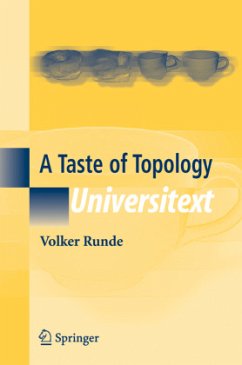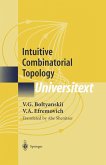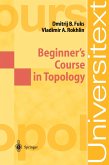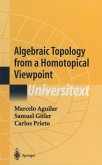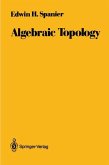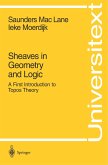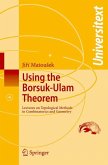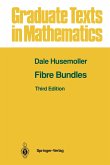If mathematics is a language, then taking a topology course at the undergraduate level is cramming vocabulary and memorizing irregular verbs: a necessary, but not always exciting exercise one has to go through before one can read great works of literature in the original language.
The present book grew out of notes for an introductory topology course at the University of Alberta. It provides a concise introduction to set theoretic topology (and to a tiny little bit of algebraic topology). It is accessible to undergraduates from the second year on, but even beginning graduate students can benefit from some parts.
Great care has been devoted to the selection of examples that are not self-serving, but already accessible for students who have a background in calculus and elementary algebra, but not necessarily in real or complex analysis.
In some points, the book treats its material differently than other texts on the subject: Baire's theorem is derived from Bourbaki's Mittag-Leffler theorem; nets are used extensively, in particular for an intuitive proof of Tychonoff's theorem; a short and elegant, but little known proof for the Stone-Weierstrass theorem is given.
The present book grew out of notes for an introductory topology course at the University of Alberta. It provides a concise introduction to set theoretic topology (and to a tiny little bit of algebraic topology). It is accessible to undergraduates from the second year on, but even beginning graduate students can benefit from some parts.
Great care has been devoted to the selection of examples that are not self-serving, but already accessible for students who have a background in calculus and elementary algebra, but not necessarily in real or complex analysis.
In some points, the book treats its material differently than other texts on the subject: Baire's theorem is derived from Bourbaki's Mittag-Leffler theorem; nets are used extensively, in particular for an intuitive proof of Tychonoff's theorem; a short and elegant, but little known proof for the Stone-Weierstrass theorem is given.
From the reviews:
"This is an introduction to set-theoretic topology ... . Each section of each chapter ends with exercises and each chapter has a section with remarks of a historical nature and suggestions for further reading. I consider this 'Taste of Topology' an interesting universitext that will make the appetite of the students grow during the years." (Corina Mohorianu, Zentralblatt MATH, Vol. 1079, 2006)
"The intention of 'A Taste of Topology' is to provide a first introduction to topology for students ... in calculus and basic algebra. ... Each chapter contains well-chosen examples and exercises and concludes with historical remarks. The presentation is based on nets instead of filters throughout, certainly to the advantage of the beginner in the field. Several novel approaches to standard material ... round off the picture of a welcome and timely addition to the introductory literature on topology." (M. Kunzinger, Monatshefte für Mathematik, Vol. 150 (3), 2007)
"The book is an introductory text for a study of topology. In general, the book is oriented to second-year undergraduates. It presents the basic language used in various fields of modern mathematics. The book covers classical topics of topology. ... The text also presents several non-typical approaches to various topics. ... The book is also a source of exercise on basic topological notions." (EMS Newsletter, September, 2006)
"...Runde does something very interesting and, I think, very useful, in the book under review: he explicitly plays down what accordingly might to the beginner appear synthetic and artificial, and plays up material which resonates with other, already familiar, mathematical notions from, for example, analysis; and he goes well beyond what is ordinarily found in a first topology course. ..The highlight of this presentation is the proof of the equivalence of having a normed space be finite dimensional, of having its closedunit ball be compact, and of having each closed and bounded subset be compact. Appearing at the end of the book in the form of an appendix this elegant characterization is a nice encore to what came before... A Taste of Topology is also rich in exercises of varying degrees of difficulty and contains excellent historical material, primarily contained in the sections labeled "Remarks" at the ends of all chapters...Manifestly Runde possesses the gifts of understatement and a light touch which contributes substantially to the book's readability... I will now amplify this by noting that I intend to use Runde's A Taste of Topology as the main textbook...I highly recommend the book." [Michael Berg; posted to MAA Reviews 12/1/2005]
"This is an introduction to set-theoretic topology ... . Each section of each chapter ends with exercises and each chapter has a section with remarks of a historical nature and suggestions for further reading. I consider this 'Taste of Topology' an interesting universitext that will make the appetite of the students grow during the years." (Corina Mohorianu, Zentralblatt MATH, Vol. 1079, 2006)
"The intention of 'A Taste of Topology' is to provide a first introduction to topology for students ... in calculus and basic algebra. ... Each chapter contains well-chosen examples and exercises and concludes with historical remarks. The presentation is based on nets instead of filters throughout, certainly to the advantage of the beginner in the field. Several novel approaches to standard material ... round off the picture of a welcome and timely addition to the introductory literature on topology." (M. Kunzinger, Monatshefte für Mathematik, Vol. 150 (3), 2007)
"The book is an introductory text for a study of topology. In general, the book is oriented to second-year undergraduates. It presents the basic language used in various fields of modern mathematics. The book covers classical topics of topology. ... The text also presents several non-typical approaches to various topics. ... The book is also a source of exercise on basic topological notions." (EMS Newsletter, September, 2006)
"...Runde does something very interesting and, I think, very useful, in the book under review: he explicitly plays down what accordingly might to the beginner appear synthetic and artificial, and plays up material which resonates with other, already familiar, mathematical notions from, for example, analysis; and he goes well beyond what is ordinarily found in a first topology course. ..The highlight of this presentation is the proof of the equivalence of having a normed space be finite dimensional, of having its closedunit ball be compact, and of having each closed and bounded subset be compact. Appearing at the end of the book in the form of an appendix this elegant characterization is a nice encore to what came before... A Taste of Topology is also rich in exercises of varying degrees of difficulty and contains excellent historical material, primarily contained in the sections labeled "Remarks" at the ends of all chapters...Manifestly Runde possesses the gifts of understatement and a light touch which contributes substantially to the book's readability... I will now amplify this by noting that I intend to use Runde's A Taste of Topology as the main textbook...I highly recommend the book." [Michael Berg; posted to MAA Reviews 12/1/2005]

